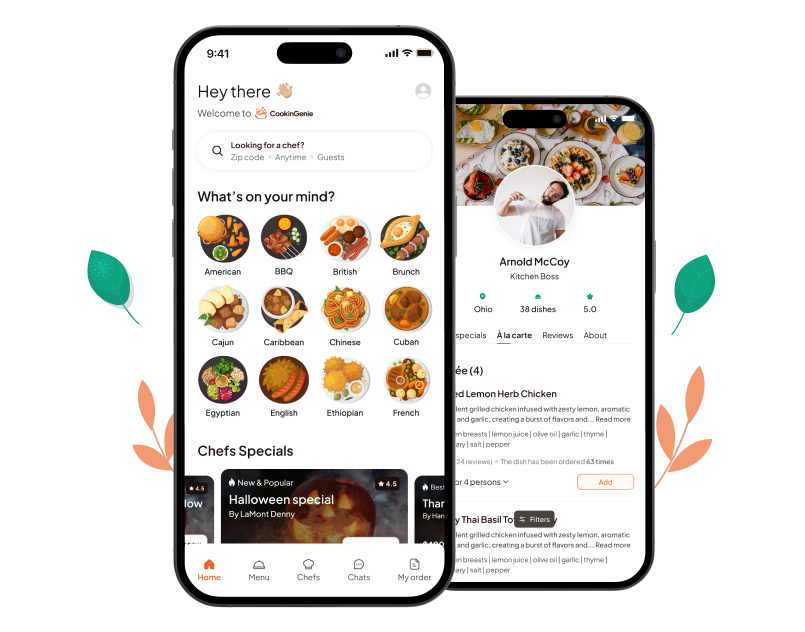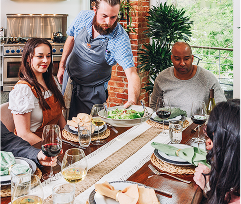Tips for Reducing Food Waste at Home
For many people across the globe, wasting food is common. We are taking larger portions than we can eat and buying more groceries than we can consume. Our shopping and eating patterns result in regularly wasting vegetables and fruits at home.
According to the Food and Agriculture Organization (FAO) of the United Nations, around 1.3 billion tons of food goes to waste every year. Another report suggests that 25,000 people lose their lives to hunger daily. Due to poor nutrition and hunger, around 3.1 million children die yearly.
When excess food is dumped in a landfill, it decomposes, producing methane. Methane is thirty times more potent than carbon dioxide. Food wastage also contributes to greenhouse gas emissions.
With the global population expected to hit 10 billion by 2050, it is a crucial time to think about how each of us can help and find a solution to food waste. Here are some concrete steps that you can take to reduce food wastage and save money every month:
Plan Your Menus in Advance
How can one plan meals in advance? Menu planning does not mean you have to decide on a three-course meal every day. It means determining what you and your family would like for breakfast, lunch, and dinner all week. It will also help you to manage time more efficiently.
Make Grocery Lists & Stick to It
One of the most effective ways to save money on food items is to make a grocery list and stick to it. This tip may sound simple, but it can help you buy just the things you require for the week. Don’t be afraid to purchase misshapen vegetables and fruits, as they are generally fit to eat. You may also get them at a discounted price. If the driving force behind your shopping spree is boredom, avoid it. Buying food items on impulse will leave you with much more than you require.
First In, First Out (FIFO)
We often buy things and store them in our refrigerator only to forget about them altogether. The acronym FIFO (first in, first out) is a reminder to consume the food items in the order they have been purchased. Once you have brought groceries home, move older products to the front of the refrigerator and put new things at the back. This way, you will consume older food items before they go bad.
Organize Leftovers
People often put their leftovers from the restaurant, takeaways from food joints, and their cooking into containers. However, these containers often get shoved to the back of the refrigerator and then get thrown out, uneaten. To prevent food wastage, you can reuse the leftovers with simple tweaks instead of cooking a new meal. You can transform your menu into something delicious with a few simple additions. Also think about creating a box with an “eat me first” tag for the food that perishes faster.
Compost Food Scraps
Another way to utilize food scraps is composting. Composting is recycling organic materials like dead leaves and food scraps through natural decomposition. The product is rich in soil nutrients and can be used in the backyard garden to grow fresh vegetables. If you have food scraps at home, you can purchase a compost box and turn food waste into soil fertilizer.
Include Your Family & Friends
Be the change you want to see in the world. Hence, to reduce food wastage, it is essential to create awareness. You can talk to your family members and friends about it. Tell them how food wastage affects our environment and has a negative impact. Share your ideas and discuss all the creative solutions that will resolve the problem of food wastage.
If you have kids at home, start educating them on sustainable ways of reducing food wastage. Teach them how to grow vegetables in their backyard, and how they can recycle waste instead of throwing it out.
Conclusion
Every small step brings us closer to minimizing food wastage at home. If we collectively work together to ensure that we only purchase what we require and make sure to consume what we buy, we can help to reduce the hunger gap.
If you end up with surplus food, don’t throw it away. Instead, share it with neighbors, colleagues, and friends. You can also donate food to soup kitchens working to provide nutritious meals to the less privileged.
While recycling leftovers can result in more nutritious meals and less wastage of food. Spending less on your food bill will help you save money. Making conscious efforts to plan your meals and shop carefully will help you build a healthier meal plan for yourself and your family.



 Settings
Settings
 Gift Card
Gift Card Blog
Blog Locate Us
Locate Us










 Home
Home
 Chefs
Chefs
 Chats
Chats
 My Order
My Order



